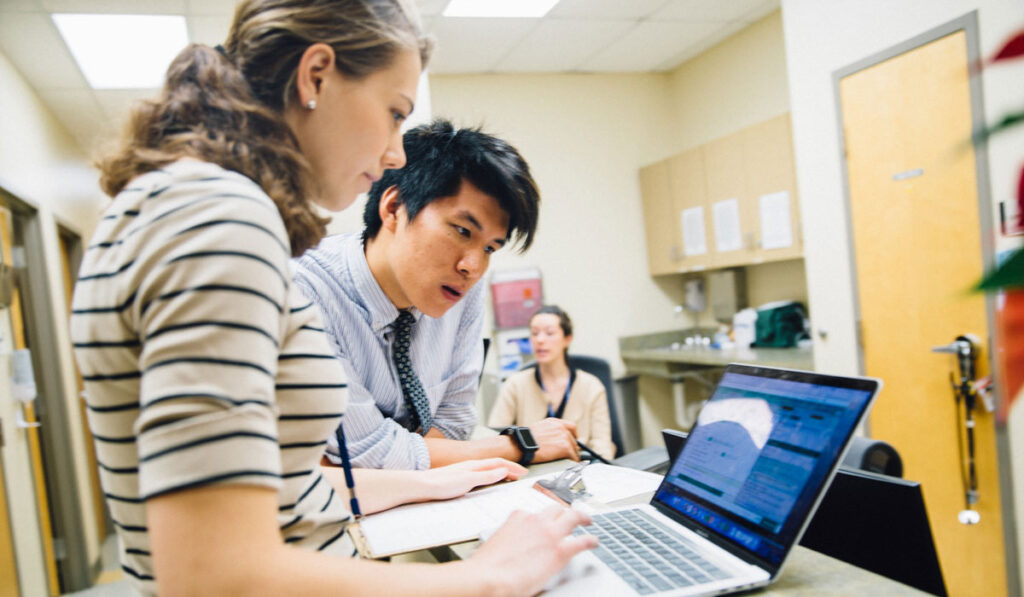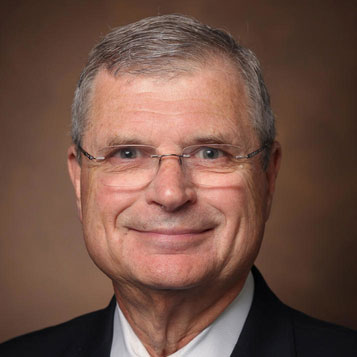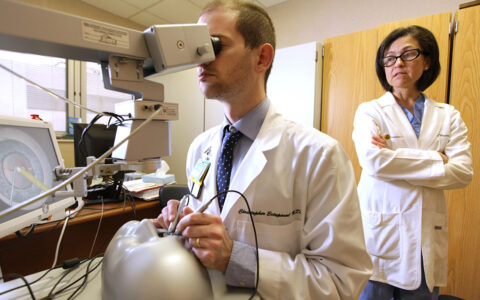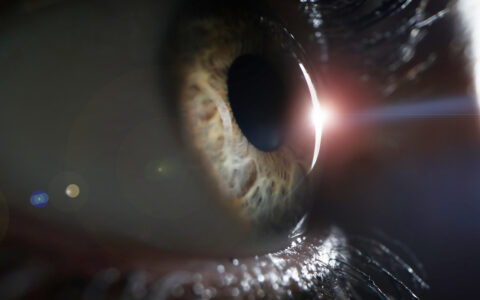Since 2004, medical and nursing students from Vanderbilt University Medical Center have played a pivotal role in creating and expanding a primary care medical home for underserved adult patients in Middle Tennessee. At the Shade Tree Clinic, trainees enhance their medical education through practical, hands-on experience, while providing important health care and social services to a community in need.
Most of the patients at Shade Tree require regular vision care. The ophthalmology clinic, added in 2013, addresses a range of eye care needs using necessary equipment including a digital retina camera and an autorefractor.
According to Janice Law, M.D., an assistant professor of ophthalmology at the Vanderbilt Eye Institute, medical schools around the country have free clinics, but not many provide specialty care at this level. “It is less common for student-run clinics to offer ophthalmology services and what is available is not as extensive as what is provided at Shade Tree,” Law said. “Ophthalmology care like this is very rare.”
Addressing Faculty Recruitment
Edward Cherney, M.D., an associate professor of clinical medicine in the Department of Ophthalmology and Clinical Sciences at Vanderbilt, serves as faculty liaison for the ophthalmology clinic.
“The students who started the clinic found it difficult to cold call faculty to ask for their time staffing the clinic, Cherney explained. “They really needed a faculty point person and I volunteered,” he said. “For me, it’s easy to ask other physicians to help out, and they come over as needed.”
Today, faculty from Vanderbilt Eye Institute have mobilized to fully support the ophthalmology trainees involved at Shade Tree, thus avoiding a common problem affecting many student-run free clinics, inadequate faculty involvement. A student takes a history and does a physical, then presents the patient to a faculty member, who determines the type of care needed.
“When the patient needs a specialty medication, they receive help accessing patient assistance programs.”
The population served at the clinic is at high risk for diabetes and high blood pressure – and the serious eye diseases that can result.
“If the patient needs eye drops or glasses, the clinic gives them eye drops or glasses. If they need a referral for specialty care, say for a retinal issue, the students will refer them to the Vanderbilt Eye Institute,” said Cherney, who also works with several local optometrists who volunteer their time.
Shade Tree Clinic is one of the few student-run clinics in the country to feature a fully functioning dispensary that can provide the vast majority of medications patients need. “We can provide more than 200 medications at the clinic dispensary, free of charge,” Cherney said. “When the patient needs a specialty medication, they receive help accessing patient assistance programs.”
A Multispecialty Approach
In addition to ophthalmology, specialty clinics are held monthly at Shade Tree Clinic in gynecology, orthopedics, physical therapy, psychiatry and wound care. Of the total number of patients seen regularly at the clinic, Cherney says about 100 are actively followed for ophthalmology care and many more have received care for acute vision problems. “Before COVID, in addition to a variety of monthly specialty clinics that we offer, we also had retina clinics three or four times a year,” he added. “They are temporarily on hold.”
“Bringing together faculty and students on projects like this clinic is helping shape the future of ophthalmology for colleagues and patients.”
Trainees provide patient education on topics including diabetes, high blood pressure, weight loss, medication management, diet, and exercise. They also bring the comfort of a familiar, consistent face and voice to a patient’s experience at the clinic.
“We have a master licensed social worker on staff who assists with housing and insurance issues, and we help people get legal advice if they need it, working with the Middle Tennessee Medical-Legal Partnership,” Cherney added.
Benefits of Real-world Experience
Students gain opportunities for leadership and for peer teaching at the clinic, Law said. For example, Christine Shieh, M.D., a cornea specialist and assistant professor of ophthalmology at Vanderbilt, and Law have been working on a quality improvement program with student Raymond Zhou. The project involves treating clinic patients for dry eyes, and teaching primary care providers at the clinic to identify and treat this condition early. The researchers will present the project at the upcoming Student Run Free Clinic Meeting in March.
Besides hands-on experience treating patients, trainees receive the benefit of faculty mentorship. “Bringing together faculty and students on projects like this clinic is helping shape the future of ophthalmology for colleagues and patients,” Law said. “We are constantly looking for ways to make patient care better.”
Reflecting on all the work done at Shade Tree Clinic, Cherney added, “It’s a great experience for everyone involved.”






